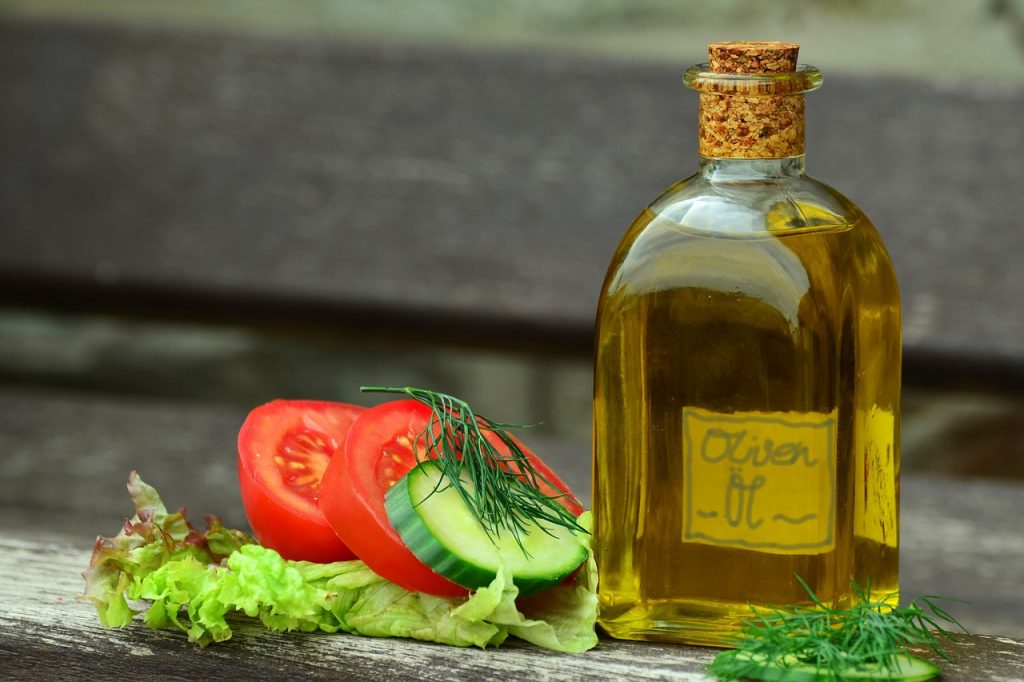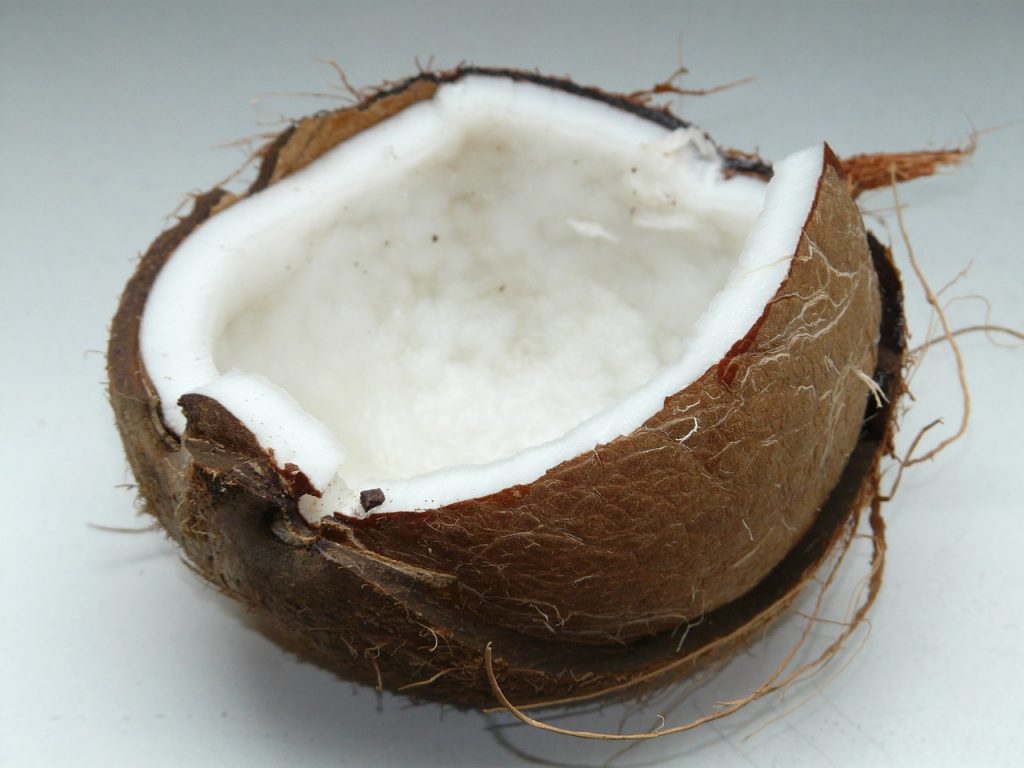In the battle of cooking oils, how do you choose as to which one is better? Sure, you’ve heard how many recommend olive oil over any other variety but do you know just what is in olive oil that makes it better? More importantly, is it really better than canola oil or any of the other varieties which are also deemed as healthy options? Is vegetable oil really that bad that you don’t need second thoughts to give it any consideration?
What Is the Healthiest Cooking Oil?
These are very important questions if you are particularly with how you prepare your food with the end goal of making better decisions to improve your overall health and wellness. Oil is a quintessentially ubiquitous ingredient, one that you cannot hope to escape if you want something more than salads and soups. Thus, it only makes sense to be truly informed about which types of oils are good, and in particular, why you consider one type of oil as good and why you’d dismiss others as bad.
This post is written towards that very same goal; which of the common oil choices in the market is better for you and your family?
We focus the discussion on canola oil, olive oil, and coconut oil. How would you choose?
Health Benefits of Canola Oil
Canola oil is produced from pressed canola seeds which is a close genetic relative to rapeseeds. Canola is actually a short-hand for the genetically enhanced rapeseed version with the long-hand name being “Canadian oilseed-low acid.” The “low acid” name is important because it provides the distinction between rapeseed oil which contains high levels of erucic acid, a substance known to be toxic to humans, and canola oil which has been genetically cultivated to eliminate all traces of erucic acid in the resulting oil.
The canola plant is classified as belonging to the cruciferous family of vegetables which also includes notable plants like broccoli, cauliflower, Brussels sprouts, cabbage, and kale among others. It is worth noting that these plants are also widely regarded as very healthy food options and are permanent fixtures in many salad recipes, green smoothies, and other outstanding vegetable dishes.

Canola seed
Is canola oil healthy?
A 218-gram (1 cup) serving of canola oil contains the following nutritional value:
- About 65% of the fatty acids in canola oil is made up of monounsaturated fats with the remaining 30% and 5% respectively consisting of polyunsaturated and saturated fatty acids. It is the saturated fats which are notable for causing various health problems like elevated cholesterol levels and the increased risk for arterial blockage via atherosclerosis and canola oil has one of the lowest saturated fatty acid content out of all the common oils in the market. This makes canola oil highly valuable if your doctor is asking you to limit your saturated fat intake to manage your risks towards heart disease, high blood pressure, and other related illnesses.
- The monounsaturated fatty acids in canola oil are also notable because they consist mainly of Omega-3 and Omega-6 fatty acids. It is a common and false misconception that Omega-3 and Omega-6 FAs which are good for the heart can only be found in seafoods. In fact, canola oil offers just as much Omega-3 and Omega-6 fatty acids as most notable fish meats.
- Canola oil is also a great source of Vitamin E and Vitamin K respectively. A 218-gram serving contains 38 milligrams of Vitamin E and 155 micrograms of Vitamin K, equivalent to 190% and 194% respectively of an adult’s daily dietary requirement for these vitamins. Vitamin E plays an important role in skin health while Vitamin K is crucial for proper blood clotting and healing of wounds, cuts, and bruises.
So why is canola oil a healthy option in the kitchen? The most important nutritional information lies in its low saturated fat content which helps keep the risk of heart problems at bay. Its high Vitamin K and Vitamin E content are also notable, providing bone and blood health where few other oils can deliver. And last but certainly not least, it’s Omega-3 and Omega-6 fatty acid content makes it ideal as a substitute to seafoods like fish meats. If you don’t have access to seafood for one reason or another, you can continue getting your fix of Omega-3 and Omega-6 fatty acid daily requirement by turning to canola oil.
Health Benefits of Olive Oil
Of all the cooking oils available in the market, olive oil requires the least introduction. It is well-known to all shoppers because it is “the” healthiest oil option, despite many not knowing just what is in olive oil that makes it truly healthy. So what can you expect from a nutritional standpoint when cooking with olive oil?
Here are a few important notes:
- By far, olive oil is the best option when considering taste, stability, and safety profiles. This is important because oils are often subjected to high cooking temperatures, so stability and palatability are crucial in order to maintain the oil’s nutritional value and not spoil the food’s taste in the process.
- The lipid profile or fatty acid distribution of olive oil is what makes it one of the healthiest oil options around. A 216-gram serving consists of about 73% monounsaturated fats with the remaining 13% and 10% made up of saturated and polyunsaturated fats respectively. We’ve already mentioned how saturated fats are critical when trying to lower one’s risks for heart diseases and elevated cholesterol so the high monounsaturated fat content in olive oil makes it ideal for people who are on the lookout for risk factors to heart illnesses.
- Olive oil also has substantial amounts of Omega-3 and Omega-6 fatty acids, although not as abundant as those in canola oil. The same 1-cup serving contains about 1650 milligrams of Omega-3 and 21,100 milligrams of Omega-6 making olive oil a credible substitute for seafood products.
- Olive oil also has notable amounts of Vitamin E and Vitamin K like canola oil, but also in slightly lower amounts. A 216-gram serving delivers about 155% of an adult’s daily dietary requirement for Vitamin E and 163% of his Vitamin K needs accordingly. As discussed, these vitamins play a crucial role in ensuring skin health and blood health.
- One thing that distinguishes olive oil from many other oils is its iron content. There are about 1.2 milligrams of iron in a 1-cup serving of olive oil, good for about 7% of one’s daily dietary needs for iron. No other oil delivers in this regard.

Olive oil
Is olive oil good for you?
Definitely. Olive oil is healthy because it has an excellent lipid profile that is low in saturated fatty acids. The extra virgin variety also contains notable amounts of phenolic compounds and antioxidants that are known to aid in preventing cancers, inflammatory disorders, coronary artery disease, diabetes, and nerve diseases among others. It’s Vitamin E and Vitamin K contents are also substantial nutritional enhancements to any diet.
The Health Benefits of Coconut Oil
Technically, the term “vegetable oil” refers to a broad class of oils which are defined as substances extracted from plants that remain liquid in room temperature. In the standard sense, this can also refer to canola oil and olive oil among many other options.
Unfortunately, the term has taken a misleading turn in recent years. Commercial vegetable oil sold in supermarket shelves is often labeled as such without identifying the specific plant from which the oil is extracted. This can be problematic since the nutritional value and health benefits of any oil are closely tied to where it was extracted from. As an example, it is common for manufacturers to use coconut oil in their brands and label it as coconut oil without really specifying it in the packaging.
Is coconut oil healthy?

Coconut
The question with coconut oil, assuming it is the actual oil type that you will find in your recently store-bought bottle of vegetable oil, is that it contains high levels of saturated fat. About 87% of the fats in coconut oil are saturated in nature with only 6% and 2% respectively consisting of monounsaturated and polyunsaturated fats. Conventional wisdom dictates that the high concentration of saturated fats can be a source of concern for people who are trying to lower their blood cholesterol levels and keep the risk for heart diseases at bay.
The truth is that a recent wave of research results suggests that coconut oil can be extremely valuable despite its high saturated fatty acid content. Research is only beginning to show that the human body might metabolize saturated fatty acids in a different way than previously thought and this may actually help emphasize the importance of understanding the effects of certain oils in the human body before making definitive judgment as to whether they are good or bad.
For that, coconut oil remains as a cautionary tale in selecting the right oil for your kitchen. It is more expensive than the other ones and can actually be used for cooking purposes in limited amounts but until we understand just how the human body deals with the high saturated fat acid content, it may be more prudent to pick the safer options in the interim.
Canola Oil vs Olive Oil vs Coconut Oil: Which One is Better?
So which one would you pick between olive oil and canola oil? It may all come down to a matter of preference although there’s one recommendation you might be able to use as a guide. Where cooking is involved, canola oil is more likely the better option. Olive oil is so much more expensive than canola oil but the nutritional benefits aren’t actually that far off of each other.
When it comes to salad dressings and oil toppings, olive oil is best because it retains the flavor of the olives from which it was pressed making it a truly commendable gastronomic experience. Where coconut oil shines is when we want to cook with small amounts of oil, like a piece of meat or chicken on the frying pan. Coconut oil will give your food a unique aroma and flavor totally uncommon between all kinds of oils.
So, are you ready to make a choice? Leave a comment below to tell us which oil you prefer and why.






